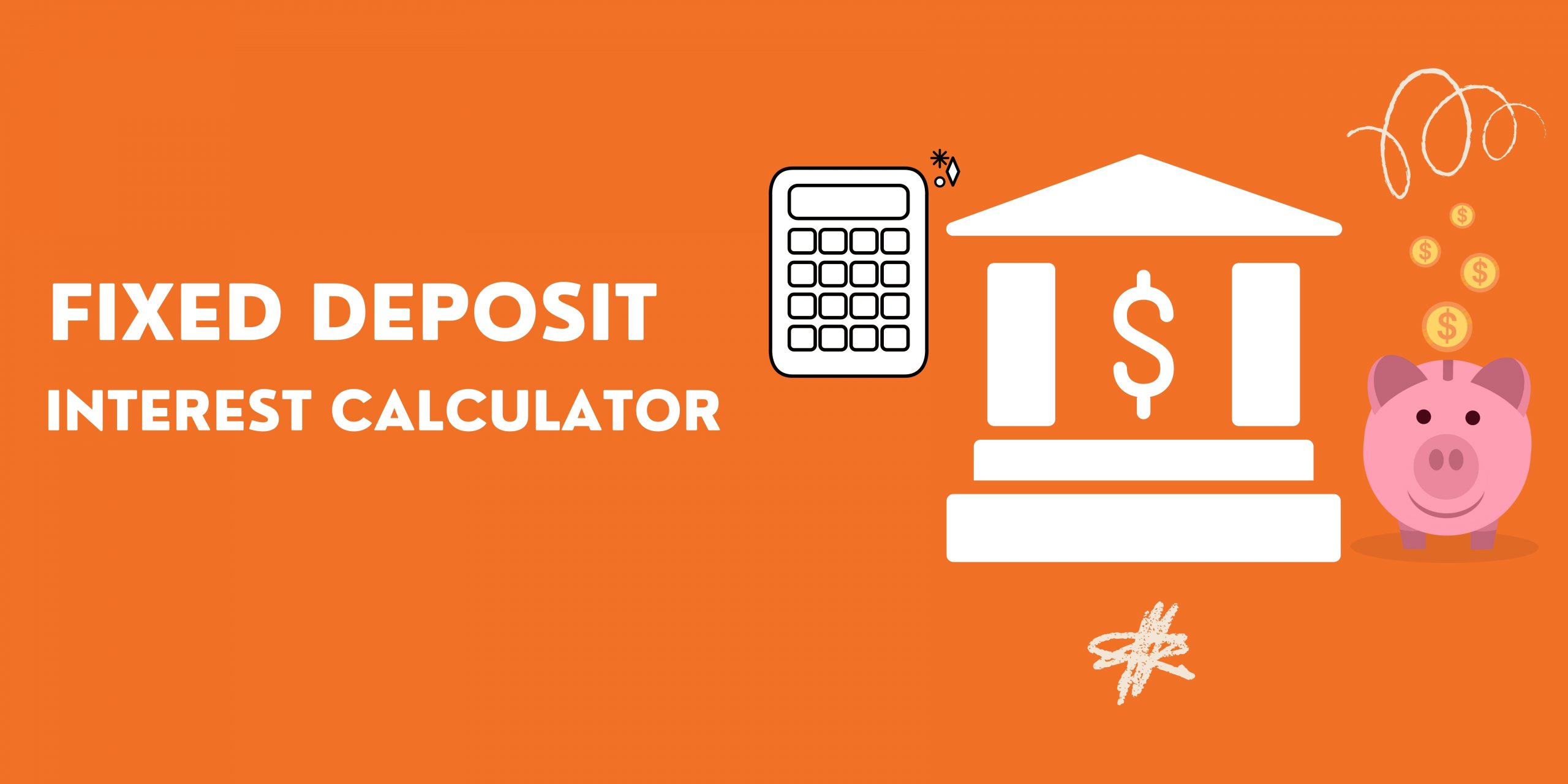Fixed Deposit Interest Calculator
What is the fixed deposit Calculator?
An investor can use the fixed deposit calculator to predict the amount paid out at the end of a set period. You can estimate your interest income using an FD calculator before you invest. The amount invested, the current interest rate and the term are all input into the FD calculator. As an output, it shows how much money you’ve made and how much money you’ve saved.
Benefits of fixed deposit calculator
- Calculating maturity amounts correctly might assist you in determining the appropriate term for your deposit.
- Enter and compare interest rates from various banks to find the best bank for your deposit.
- Make sure that your calculations are correct every time and that you don’t make any mistakes.
- Calculate maturity amounts in a fraction of the time it takes to do it with a digital calculator or spreadsheet.
- You can make smarter decisions on fixed deposit renewals by comparing maturity amounts.

How to Use FD Calculator?
- Enter the deposit amount (Fixed Deposit Amount)
- Enter the interest rate(Rate of Interest)
- Enter the tenure duration (the period for which you want FD to be active)
What is a Fixed Deposit?
A fixed deposit is a financial investment instrument offered by banks and non-bank financial companies that allows investors to deposit money and earn a higher interest rate than a conventional savings account. In India, fixed deposits are the most popular investment vehicle. FDs have been associated with investing for many years because they are regarded as safe, give assured returns over time, and have flexible duration. The more the deposit amount for a more extended period, the higher the applicable interest rate and interest earned due to the power of compounding.
Features of an FD
Here are some of the features of Fixed Deposits
- Safer than other types of investments.
- Allows you to earn interest over a set period.
- Tenure options range from one to ten years.
- There is no maximum deposit amount.
- Senior citizens are subject to higher rates.
How Does an FD Account Work?
When you put your money into a fixed deposit, you effectively lock in the amount for a specific period. Throughout the term, you can earn interest on the principal balance cumulatively. The interest earned is added to the principal amount after each selected interval.
You can handle many FD accounts with varying tenures because the tenures are variable. As a result, you’ll be able to get a better return on your money. Senior citizens are eligible for higher rates, ranging from 0.25 to 0.65% above the current rate. Non-resident Indians (NRIs) can also open FD accounts in India, known as NRE and NRO FDs.
You can open a term deposit account with a bank if you already have a savings account with them. Some banks will let you start a fixed-income fund even if you don’t have a savings account with them. However, such institutions will ask you to go through a KYC process, which will demand you to produce documents such as proof of identification, proof of address, passport-size pictures, and so on.
Eligibility Criteria for opening FD
The entities listed below are eligible to open an FD account in India:
- NRI Indian resident
- Minors
- Senior citizens
- Companies
- Firms that form partnerships
- Individuals or groups of investors
- Clubs and societies
- One-person business
Fixed Deposit Calculation Formula
The bank interest rate on a bank fixed deposit is pre-determined when the investment is made. Furthermore, it remains consistent over the investment duration. A few elements that influence fixed deposit interest rates are as follows:
- To begin with, the duration of the investment is a component that influences the interest rate; the longer an investor stays engaged, the greater the interest rate will be.
- For a senior citizen, the interest rate is higher, ranging from 0.25 per cent to 0.75 per cent greater than the standard rate of interest. A preferred interest rate is a term for this extra interest. The age at which a person is considered a senior citizen varies from one bank to the next. A few think around 60 years, while others think about 55 years.
- The current state of the economy is also a primary determinant. Financial institutions and banks consider economic variables such as the repo rate and inflation rate to set interest rates.
- Finally, two ways to calculate the interest on a fixed deposit are simple interest and compound interest.
FAQs:
Can I withdraw FD before maturity?
In case of an emergency, most banks allow you to withdraw your FD before it matures. Early withdrawal will result in a minor penalty charge and the loss of interest for the remainder of the term. Tax-saving FDs cannot be withdrawn prematurely.
Is it better to invest in a fixed deposit?
The interest on a fixed deposit is higher than the interest on a savings account balance. As a result, it is preferable to put your money in an FD than a savings account. However, an investor should consider other investment options that offer a higher rate of return than a fixed deposit. Debt mutual funds and tax-saving mutual funds are two further investment possibilities.
How do I get a TDS exemption?
Individuals with interest earnings of less than 40,000 per year (50,000 for senior citizens) are eligible for TDS exemption. Form 15G can be submitted by investors, while Senior citizens must submit form 15H.
Is it possible to get monthly interest on my FD?
Your FD interest can be compounded monthly, quarterly, semi-annually, or annually, depending on your preferences. On the other hand, compounding regularly can lower the rates.





























